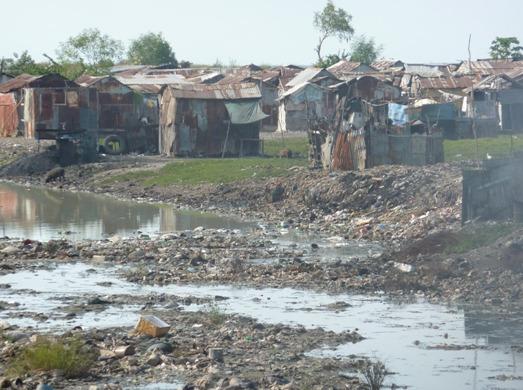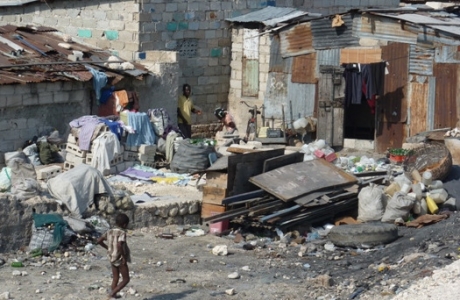
Water has been identified as a top priority for aid to Haiti as it struggles to recover. The consequences of not having access to water extend beyond dehydration. Thirst drives people to water sources they would not have considered before - sources contaminated with human waste, garbage, and industrial byproducts. Using this water leads to diseases like cholera and dysentery, which spread rapidly through communities. Aid efforts must place a priority on bringing safe water to Haiti as soon as possible if the country is to quickly move beyond the immediate crisis to long-term recovery efforts.
Providing water to Haiti has been troublesome for decades. According to the World Health Organization, only 58% of Haitians had sustainable access to clean water in 2006. And this meager portion has only increased by six percent since 1990. Figures for access to safe sanitation facilities are even worse with only 19% having access in 2006, down ten percent since 1990. The destruction caused by the earthquake has depressed these numbers even further.
Sanitation and water quality experts around the world are proposing solutions to Haiti's monumental water problems. Steve Solomon, author of Water: The Epic Struggle for Wealth, Power and Civilization, suggests in a New York Times editorial that Haiti focus on local water networks with flexible piping that can be buried and repaired easily. He also advocates delivering bulk water to distribution points where local leaders handle payments and maintain the system. Peter Gleick, President of the Pacific Institute, writes about the effort to bring emergency water relief to Haiti in a recent post for San Francisco Gate's City Brights blog. He agrees with Solomon about the need to focus on local systems, and favors small-scale purification systems over bottled water, which is expensive and difficult to ship.
The tragedy in Haiti has brought to light the consequences of not having access to clean water. Across the globe, 1.1 billion people do not have access to reliable, clean water and 2.6 billion do not have access to adequate sanitation. For more information on water issues, the Pulitzer Center's Water Wars web portal provides insight into the causes and solutions of the global water crisis.





